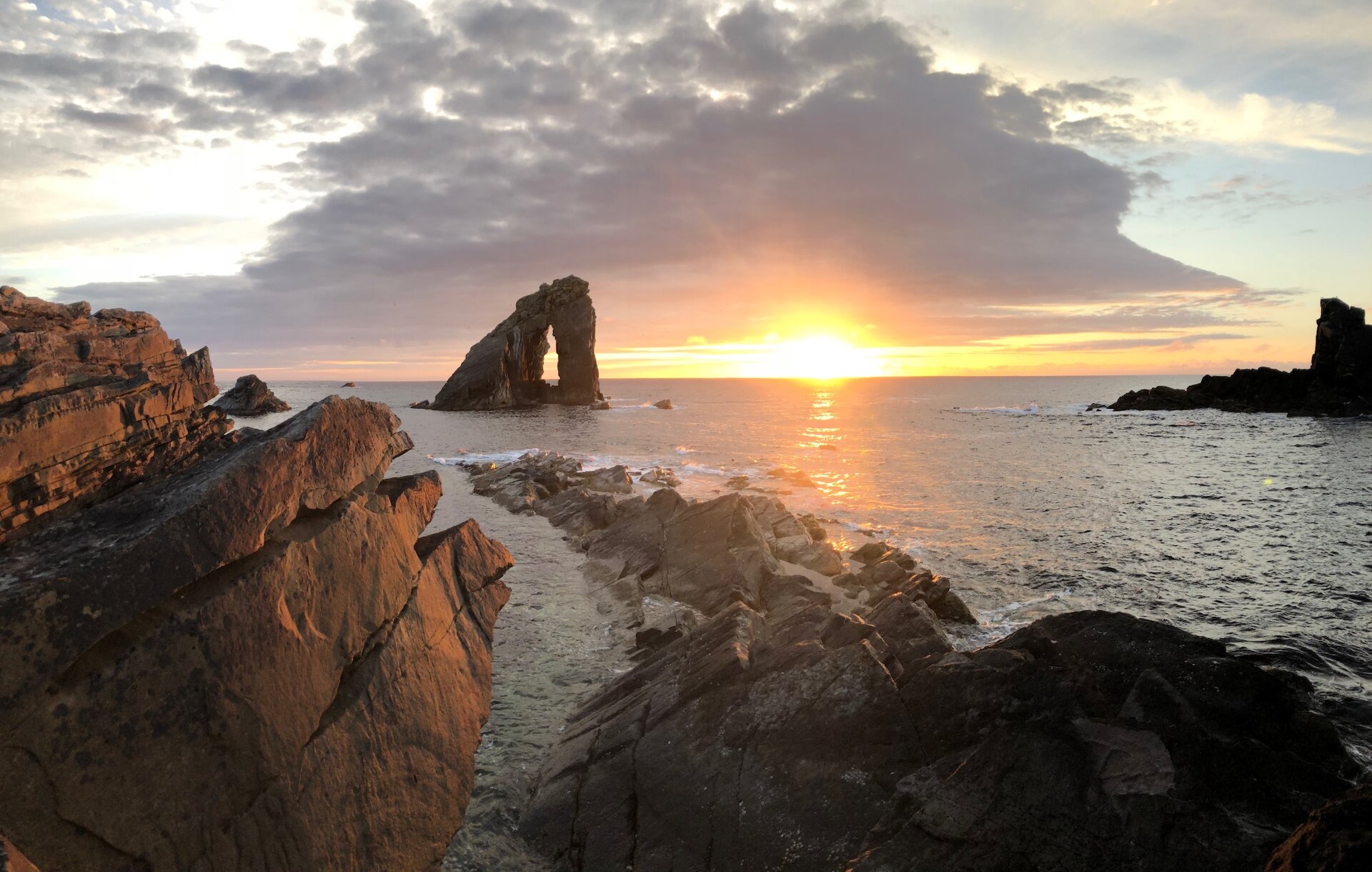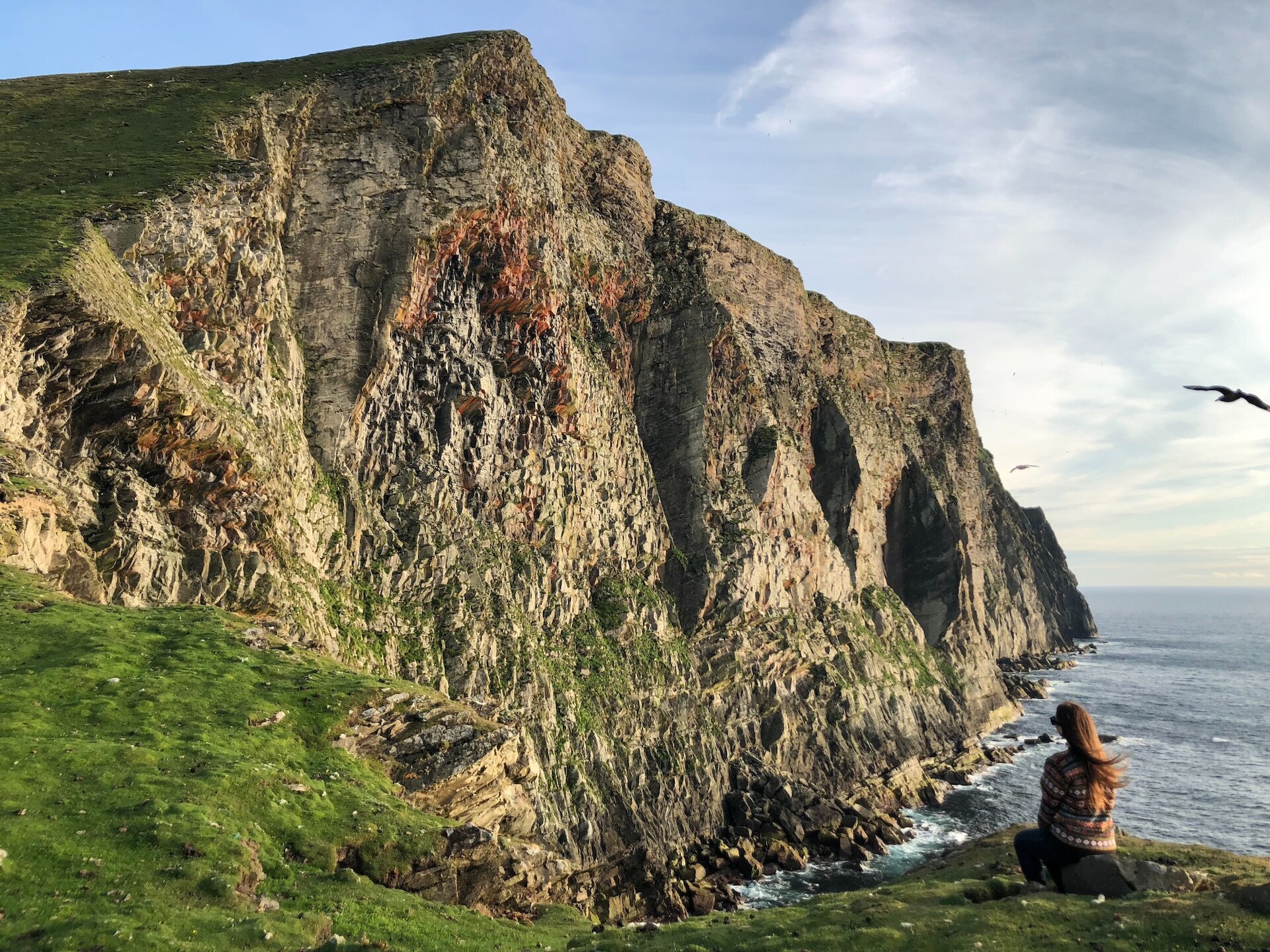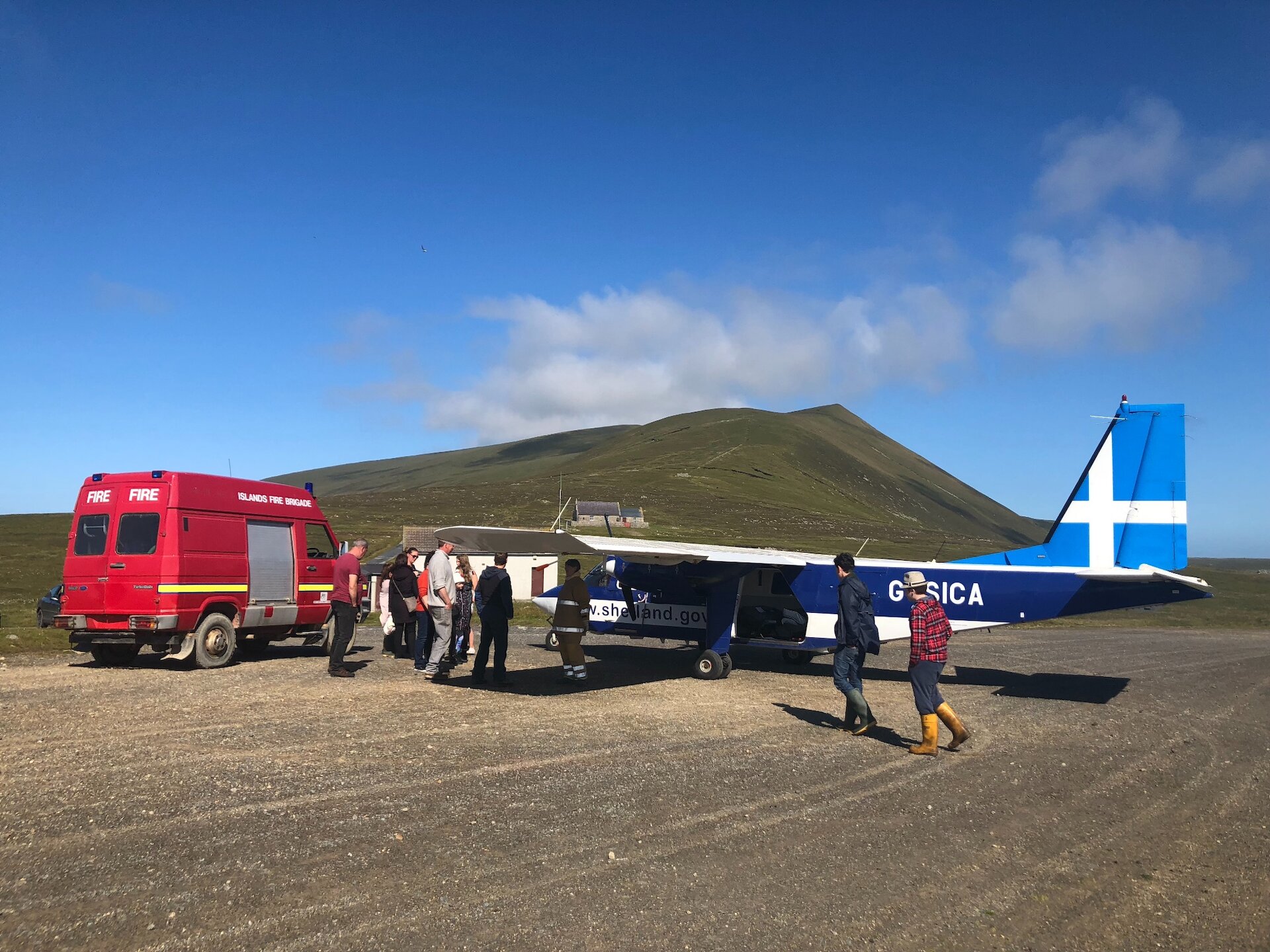Have you ever dreamt of making a completely fresh start? What if you could live on one of the most remote islands in Britain?
Foula is one of the most picturesque islands in Shetland, with the second highest sea cliff in Britain, and home to an array of seabirds, which attract visitors from around the world. It’s also home to just 35 full-time residents, who share and manage the running of the island. Jobs include ferry crew, fire crew, a nurse, a postman, three rangers, a fisherman, accommodation providers, and electricity and water maintenance workers. And, as with other rural communities in Shetland, the islanders also work the land as crofters.
“Apart from the teacher and nurse we are all crofters and exclusively keep multicoloured ‘Foula sheep’ of which there are approximately 1000,” explains Magnus Holbourn, who runs Foula Wool and who has lived most of his life on Foula.
“The island has its own yarn business, producing a range of undyed naturally coloured yarn. This yarn is marketed online as Foula Wool and shipped out to knitters all over the world.
“Life is very seasonal in Foula and nature dictates what activity you will engage in on any given day. Crofters cut peat to heat their houses in winter and also grow some vegetables for food."


